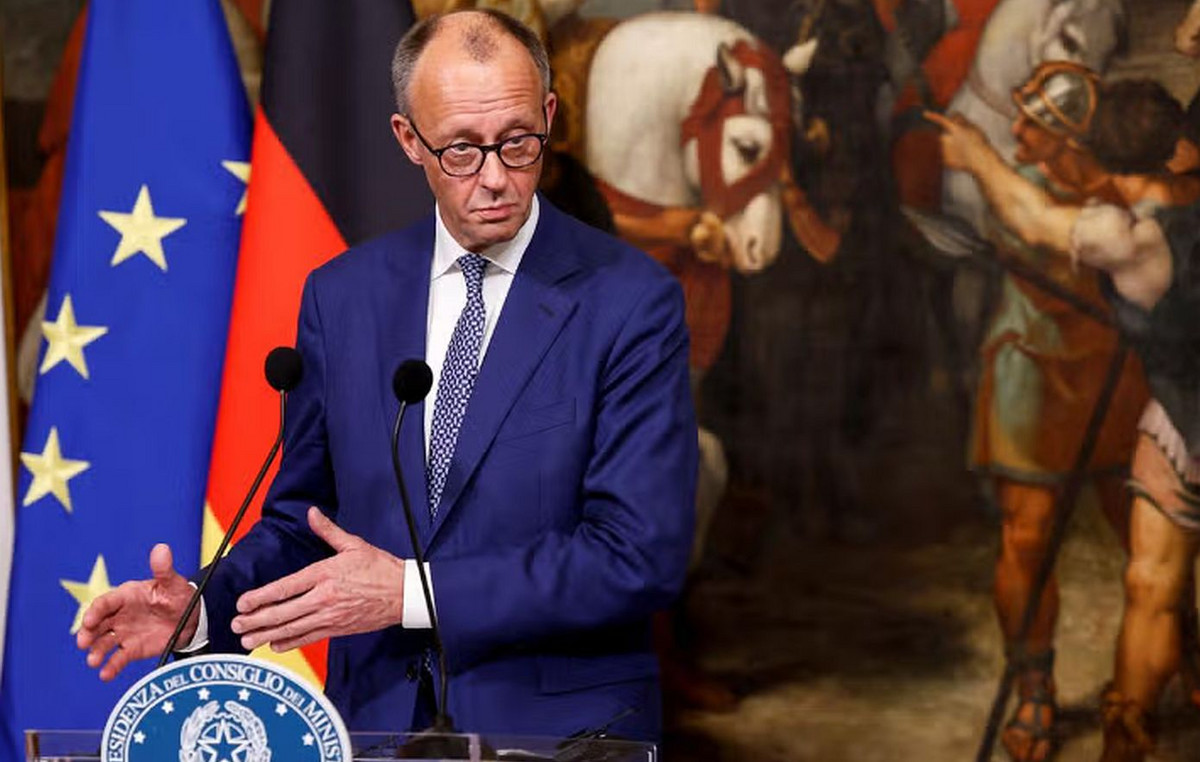Of Eleftheria Kourtali
International markets appear to be assessing the prolongation of the war situation, rising inflation, the more aggressive tightening of monetary policy by central banks and the risk of stagnant inflation, with messages from international companies about the course of the shares being cautious. . This summer, anything but quiet is expected for the Stock Exchange, while the repetition of an autonomous course of the ATHEX. similar to the one that occurred in the first four months seems to be no longer possible, with the General Index faithfully following the … international moods.
BlackRock downgraded its positive stance to neutral a few days ago and this week stressed that the current volatile macroeconomic and market landscape will continue, in its view. He believes that the central banks will eventually give a historically silent answer to inflation, that is, they will not prove to be as aggressive as it is valued by the market at the moment. This supports its baseline scenario for the preference of shares over government bonds in the long run. However, in the short term, the markets will be difficult, as they will continue to price aggressive interest rate increases, pushing the investment climate. “When and in the coming months we see another sharp shift in monetary policy to a more lenient rhetoric, it will also be the catalyst for a return to the overweight stance on equities,” BlackRock added.
HSBC remains risk-off and is underweight in stocks, as it notes that stocks have stabilized in the last two weeks and come from a strong sell-off, which has reduced valuations, but caution is required. There are important reasons, he points out, that valuations can not be a reason to increase exposure to stocks. As he explains, valuations alone are rarely a good guide for investment strategy, while markets are not as cheap as they seem. The S&P 500 P / E may have fallen below the 5-year average, but the last 5 years have been an unusual and “special” period, with unprecedented fiscal and monetary stimulus, especially in the last two years.
In addition, HSBC still believes that corporate growth and profitability expectations are very optimistic, with macroeconomic indicators still indicating a further decline in the coming months.
The S&P 500 is set to plummet, Morgan Stanley warned this week as investors struggled to find refuge amid fears of a recession and aggressive tightening by the Federal Reserve. “With defensive stocks now expensive and offering little uptrend, the S&P 500 looks poised to enter the bearish market,” the US bank’s strategic analysts said, seeing the index fall to 3,400 points by mid-day or mid-term. end of August – ie a dip of about 18% from current levels. “The market has experienced strong selective positions from investors and it is not at all clear where the next rotation will be. In our experience, when this happens, it usually means that the overall index is going to fall sharply, with almost all stocks they are diving “, they added characteristically.
However, unlike BlackRock, Morgan Stanley and HSBC, JP Morgan is very optimistic. As it emphasizes in a new report, it remains positive in the shares, due to the fact that the investments of the investors are close to historically low levels, the market psychology remains negative, while in its view there will be no recession, given the support from the consumers of USA, the opening of the world economy and the recovery of China. The war in Eastern Europe is a major threat to the current cycle, he points out, but a solution is likely in the second half. “Despite the sharp sell-off, we believe that the markets will recover this year ‘s losses from the beginning of 2022 and will end up in general unchanged this year,” he said.
Finally, he estimates that the pattern of markets in May will be a model for the whole year, in the sense that the market sold-off in the first half (as it did in the first half of May) and will follow a gradual recovery in the second half ( as in the second half of the month).
Where do analysts see the ATHEX? and banks
The performance of the Greek GDP in the first quarter, which surprised the analysts and indicate upgrades soon in terms of growth estimates for the whole year, were not “capitalized” on the board of Athens Avenue.
According to Axia Research, the strong performance in the GDP of the first quarter (+ 7% per year, + 2.3% on a quarterly basis) confirms the growth trajectory of the Greek economy despite the opposite winds associated with the effects of the war in Ukraine, supply chain disruptions and inflationary pressures, especially in energy. Looking to the future, for the rest of the year, although the headwinds will persist, Axia emphasizes that tourism (possibly moving close to 2019 levels), the start of major public and private projects, as well as investments related to RRF funds that are gradually beginning to flow into the economy, are likely to lead to better results for Greek GDP than has been estimated.
Capital Economics, for its part, gave almost … automatically new significantly revised forecast, noting that, given the strong performance of the Greek economy in the first quarter, it now expects that annual GDP growth will be around 5.5% this year, from 3.5% previously forecast.
Overall, however, the ATHEX continues to be in a fragile balance, flirting with the 900 points and accepting pressures when it secures them, however analysts point out that for the General Index there is a further upward margin in the short term to the area of 930 points, but the developments will seal the vitality. traffic.
From now on, the market will follow the individual business news more, as the effect of high prices on the cost of sales is expected to have a stronger character in the following quarters, a fact that was reflected in the gradual extinction of daily turnovers, Beta Securities estimates. The gradual decline of the turnover can not be considered supportive for the further rise of prices, the stock exchange estimates. Nevertheless, as long as the market trades above the 30, 50 and 200 day moving averages in a rare simultaneous convergence of the three trend indicators at 886 points, it gives buyers a slight lead. The project of a new upward escape, however, will require much better trading data, as the increase in supply above the levels of 900 points is obvious.
According to Fast Finance, 2022 is a special year, with the Greek Stock Exchange having managed to be in profit and the rest just trying to make up for some of the losses. According to the analyst, this alone shows that the Greek economy is in another phase and can make a difference even in a period when the other countries will simply try not to enter a recession. At the same time, new deals in the market could stimulate it, while tourism seems to be able to reach even the 2019 record.
Technically 900 units is a very important level and a certification could, if nothing else, give a momentum to 935 units. so far what we are seeing is a rotation in high capitalization securities, simply maintaining the image in the market. Medium capitalization has long lagged behind the rest, having lost the good image of the last two years.
The matches of the General Index with 900 points lead, during the Stock Exchange Cycle, to successive failures of their attempts to overcome them, creating conditions for scenarios of lateral movement. The repetition of an autonomous course of the Greek Stock Exchange similar to the one that occurred in the first four months is no longer possible, as he notes. At the same time, the performance recorded by the companies in the first quarter (+ 145% for 28 listed with the help of banks, refineries and other index-weighted securities) is promising.
“It is clear that maintaining the foggy scenario of the Ukrainian crisis fuels investor skepticism, as it maintains uncertainty about cost data and demand conditions, which could upset the corporate size picture in the coming quarters,” he said. the stock market. The technical image now allows the reference to support points in the area of 880 units and resistance limit of 920 units, to the extent that the fort of 900 units of the General Index is exceeded.
However, analysts continue to give a significant vote of confidence to Greek banks, emphasizing the very attractive valuations of their shares, raising target prices and thus seeing significant room for growth on the board of Athens Avenue.
Eurobank Equities, given the strong profitability prospects, considers that the valuations of Greek banks are quite attractive and, thus, maintains a constructive attitude, due to the positive macroeconomic framework, the much clearer balance sheets that allow the focus on profit creation, the prospect of higher and the banks’ strategy of turning to procurement activities. As for the course of their shares, he believes that the biggest risk at the moment is the unstable and unsafe external environment. The stock exchange proceeded to increase the target prices it gives for their shares, and specifically for Alpha Bank the target price is set at 1.42 euros from 1.31 euros before, for the National Bank at 4.50 euros from 4.20 euros before and for Piraeus Bank at 1.80 euros from 1.74 euros before, with a “Buy” recommendation to all.
Deutsche Bank sees an increase of up to 57% for the shares of Greek banks. For Alpha Bank and the National Bank he recommends “Buy”, while for Eurobank and Piraeus Bank the recommendation is “Hold”. In terms of target prices, according to the German bank, for Alpha Bank it is at 1.55 euros, for Eurobank at 1.15 euros, for Piraeus Bank at 1.55 euros and for the National Bank at 4.50 euros. In terms of dividend yield, he sees that from 2023 it will cease to be zero, as the systemic banks will re-enter the dividend distribution cycle, and thus for Alpha Bank it stands at 1.6%, for the National Bank at 1.4% and for Piraeus Bank at 4%. In 2021 the dividend yields are set at 7.4%, 2.3% and 7.6% respectively for the three systemic.
A few days earlier and after the completion of the first quarter results, Euroxx Securities had also stated this bullish view of the industry. As he noted, the story of Greek banks remains strong and attractive, despite the outbreak of the crisis in Ukraine and energy and concerns about a slowdown in GDP growth. Thus, it maintains the overweight recommendation for all four systemic banks and the target price of 1.60 euros for Alpha Bank, 1.30 euros for Eurobank, 4.20 euros for the National Bank and 2.20 euros for Piraeus. Euroxx expects that the goals of Greek banks will be achieved in general terms in terms of expanding loans and repaying ROE equity.
Source: Capital
I am Sophia william, author of World Stock Market. I have a degree in journalism from the University of Missouri and I have worked as a reporter for several news websites. I have a passion for writing and informing people about the latest news and events happening in the world. I strive to be accurate and unbiased in my reporting, and I hope to provide readers with valuable information that they can use to make informed decisions.







